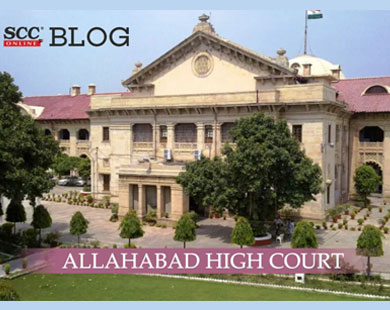Allahabad High Court: In a writ petition filed for quashing the order uploaded on the website of the Department of Animal husbandry (‘Department'), the division bench of Attau Rahman Masoodi and Om Prakash Shukla*, JJ. said that a mere disagreement with the decision-making process of the tender authority is not a reason for a Constitutional Court to interfere with the same. However, it cautioned the authorities to guide the timely approaching eligible bidders, fallen in confusion, to promote the object of healthy competition.
The petitioner prayed for quashing the order uploaded on the website of the Department, whereby the bid submitted by the petitioner has been declared as non-responsive because the same did not meet the requirement of clause 12(c) of the Request for Proposal(‘RFP') relating to the aspect of submission of Earnest Money Deposit (‘EMD') and further challenged to the order dated 09-11-22, whereby the tender summary report was uploaded, and the Department has fixed the date of opening of financial bids on 10-11-22.
The Court said that the issue relating to the award of tender or tender documents is no longer res integra. Further, the extent of judicial review of the award of tender or tender documents comes with its own sets of limitations, considering the fact, that a contract is a commercial transaction and any evaluation of any such tenders would also be a commercial function.
Placing reliance on Tata Cellular v. Union of India, (1994) 6 SCC 651, the Court said that the Supreme Court time and again has kept a clear approach of not interfering in the tender jurisdiction of the government bodies or tendering authorities, unless the court senses any disregard of principles of natural justice or presence of any arbitrariness or malafide process.
Further, explaining the limitation of Judicial review in tender matters, the Court referred to Jagdish Mandal v. State of Orissa, (2007) 14 SCC 517, and while referring to National High Speed Rail Corpn. Ltd. v. Montecarlo Ltd., (2022) 6 SCC 401, the Court said that the Supreme Court has put a certain caveat on entertaining a writ petition in this kind of matter.
The Court while answering whether the EMD submitted by the petitioner fulfils the requirement of clause 12 (c) of the tender document, referred to the said clause, and observed that EMD must be in the form of account payee demand draft, fixed deposit receipts, banker's cheque or bank guarantee from Scheduled/Nationalized Bank and shall be in favour of Director, Disease Control & Farms, Department of Animal Husbandry, UP payable at Lucknow. However, the Court found out that these fixed deposit receipts (‘FDR') from the bank is in the name of the petitioner and not in the name of director.
The petitioner submitted that lien has been marked in favour of the State by the bank and as such the same is negotiable and should be considered at par with the instrument mentioned in clause 12 (c) of the tender document. The Court said that it is difficult to accept this submission as the Tender evaluation Committee in no uncertain terms has refused to accept the EMD submitted in the form of a lien created on FDR, to be in terms of clause 12 (c) of the tender document.
Further, answering whether the Court can go into the decision of the committee, the Court relied on Afcons Infrastructure Ltd. v. Nagpur Metro Rail Corpn. Ltd., (2016) 16 SCC 818 and Central Coalfields Ltd. v. SLL-SML (Joint Venture Consortium), (2016) 8 SCC 622, and refrained from imposing its decision over the decision of the employer, as to whether or not to accept the bid of a tenderer, who has offered to submit the EMD in the form of lien created on an FDR in his name.
Further, the Court said that when the earnest money is given in the nature as the petitioner had given, then the authority would not be able to realise the money from the bank just on intimation to the bank that EMD is forfeited. As the said term deposit receipt being in the name of the petitioner and singly operated, though lien was marked to the director, will be allowed to be operated by the petitioner only, as its name is printed on them. That being so, the authority would get the money of forfeited EMD only on the mercy of the bidder, which is not the intention of Condition No. 12(c) of tender. Thus, the Court allowed the State to go ahead with the tendering process, as per the law.
[Ziqitza Health Care Ltd v State Of U.P, 2022 SCC OnLine All 866, decided on 20-12-22]
Advocates who appeared in this case :
Counsel for Petitioner: – Advocate Sunil Kumar Chaudhary
Advocate Kapil Misra
Counsel for Respondent: – Chief Standing Counsel
Apoorva Goel, Editorial Assistant has reported this brief.






